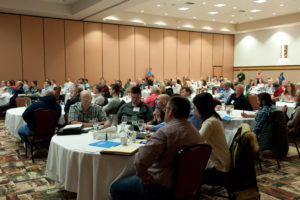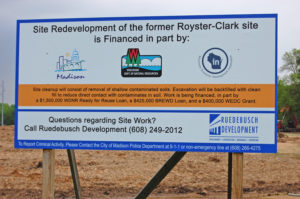The RR Program’s February webinar will provide answers to common questions related to the management of demolition related materials, including asbestos, PCB containing material, lead based paints and hazardous building components that commonly contain mercury and other compounds of concern. The presentation will focus on processes and recommendations for successful demolition project coordination.
Ed Lynch, Hazardous Waste Section Chief, will provide an overview of requirements for managing hazardous materials as part of renovation and demolition projects. The DNR’s Asbestos Coordinator Mark Davis and Mark Chamberlain, Air Management Specialist, will provide an overview on Wisconsin Administrative Code NR 447 “Control of Asbestos Emissions.” When facilities are undergoing renovation or demolition and asbestos containing materials could be disturbed, the requirements of the EPAs National Emissions Standards for Hazardous Air Pollutants (NESHAPS) apply. The presentation will discuss the asbestos inspection, notification, and disposal requirements for demolition/renovations projects involving commercial/industrial facilities.
This overview will provide information on permits, DNR approval and reporting requirements, as well as information on contacting the DNR for assistance when questions arise during the completion of demolition work.
Date: February 8, 2017 Time: Noon – 1:00 p.m. Join by phone: 1-855-947-8255, passcode: 6612 745# Questions in advance can be sent to DNRRRComments@wisconsin.gov
The presentation notes for this teleconference will be available soon on the RR Program Training Page. The audio will be available in the training library shortly after the conclusion of the teleconference.
A schedule of future Issues & Trends events is also available in the Training Library, along with recordings of previous presentations.
 Semi-annual reporting for the period of January 1, 2017 to June 30, 2017 is due August 8, 2017. Semi-annual reporting is required of responsible parties (RPs) for all “open” sites, including those sites the DNR formerly classified as “conditionally closed,” in the BRRTS online database. Consultants may submit these reports on behalf of the RPs.
Semi-annual reporting for the period of January 1, 2017 to June 30, 2017 is due August 8, 2017. Semi-annual reporting is required of responsible parties (RPs) for all “open” sites, including those sites the DNR formerly classified as “conditionally closed,” in the BRRTS online database. Consultants may submit these reports on behalf of the RPs.

